Vegetarian Keto: Can Vegetarians Go Keto ?
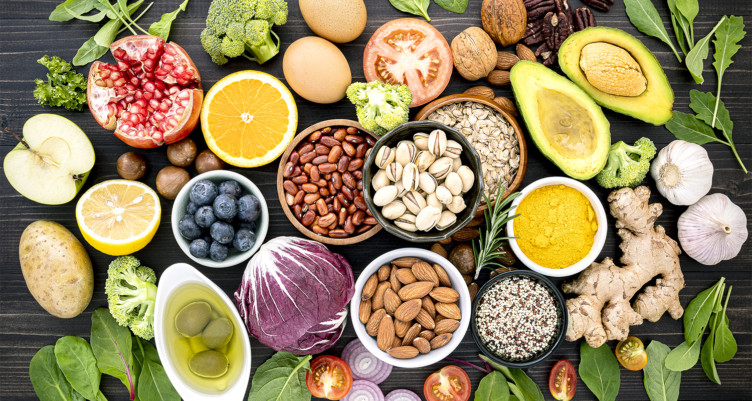
- Yes, you can follow a vegetarian ketogenic diet. You just need to pay close attention to how you balance your macros and nutrients.
- Bulletproof vegetarian keto recipes incorporate quality fats. They also feature enough protein to meet your macro goals and allow for plenty of fruits and veggies in your diet.
- Supplements can be a helpful solution for micronutrient deficiencies that may result from a lack of animal products in your diet.
Does the thought of going vegetarian keto seem almost impossible to you? After all, the ketogenic diet doesn’t include many carbohydrates. The typical macronutrient breakdown with this eating plan allows for less than 50 grams of net carbs per day, going as low as 20 grams.[1]
If you don’t eat meat and animal products, is it realistic to follow a vegetarian lifestyle combined with a high-fat, ketogenic approach?
Absolutely.
Getting the right balance in a vegetarian keto diet does mean you’ll need to plan ahead. We’ve created this guide to help you get it right. Discover a comprehensive vegetarian keto food list below. We’ll also share recipes and tips to get you started on your fat-fueled, plant-based journey into ketosis.
How to Approach the Keto Diet as a Vegetarian
Following a vegetarian keto diet plan means saying goodbye to gluten, grains and many starchier vegetables. Vegetarians typically follow high-carb protocols. This means it can be challenging to make the switch to a more keto-focused lifestyle.
As a vegetarian interested in a low-carb diet like keto, you can adjust your net carb intake to account for more plant-based foods. You would consume about 20 grams net carbs per day on a standard keto diet. That can increase to around 50 grams through a mostly plant-based approach.
To unlock the power of ketones, there are plenty of quality, vegetarian-friendly fat sources available.
Are you a lacto-ovo vegetarian who includes dairy products in your diet? There are also many ways for you to incorporate quality fats from dairy and eggs into a vegetarian keto meal plan. And there’s flexibility to tweak recipes to cater to your specific dietary approach.
Can You Consume Bulletproof Coffee as a Vegetarian on Keto?

We’re biased, but nothing is better than starting your day with a brain-boosting cup of coffee. Bulletproof Coffee ingredients create a delicious, fat-fueled drink for lacto-ovo vegetarians. They include Bulletproof Original Coffee, Bulletproof Brain Octane C8 MCT Oil and Bulletproof Grass-Fed Ghee.
Note that if your body does not tolerate dairy, you should not consume ghee or butter in your coffee or your plant-based meals.
If you’re dairy intolerant or don’t want to consume dairy, you can try a modified Bulletproof Coffee recipe. This drink contains a prebiotic powder for extra gut support.
What else can you include in your meal plan? Read on for an overview of go-to ingredients you should have at the ready.
The Ultimate Vegetarian Keto Food List
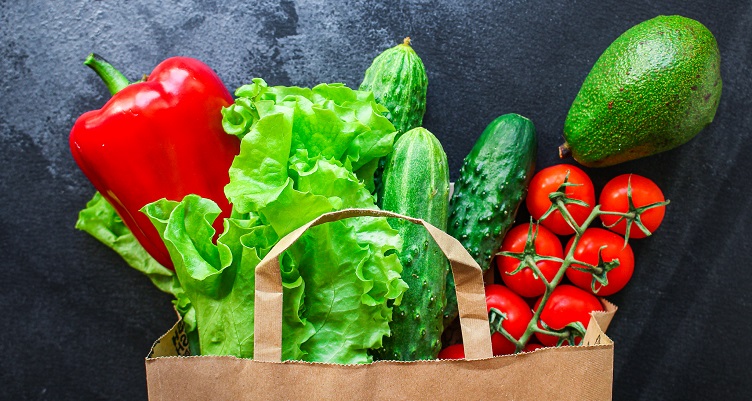
You might be researching vegetarian keto for weight management.[2] Or maybe you’re trying the super-low-carb lifestyle for other wellness benefits.[3] Either way, stock your pantry and fridge with the following vegetarian keto food list.
This approach has a bit higher net carb count than a standard keto food list. That’s why we’ve included more fruits and vegetables.
Vegetarian Keto Friendly Fats
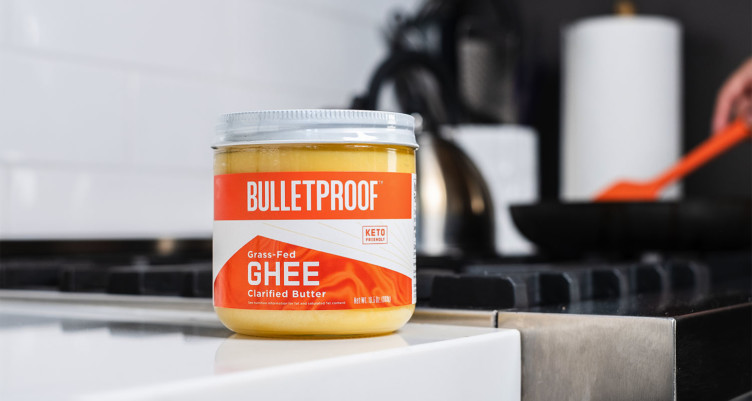
The ketogenic diet focuses on fueling your body and brain with quality fats. Incorporate this macronutrient into your meal plan as a first step. While coconut oil is a great source of quality fats for vegetarian keto dieters, you should also explore other options.
For example, Brain Octane C8 MCT Oil rapidly converts into ketone energy. This can provide brain-supporting[4] and fat-burning benefits.[5] Since the oil is flavorless, you can mix it into smoothies or salad dressings. We recommend whipping up a batch of Creamy Basil Vinaigrette to liven up your salads and veggies.
Another option is Bulletproof C8 and C10 MCT Oil. It metabolizes fast and can help fight off cravings.[6] This can help keep you focused[7] at work, in the gym or on the go. See for yourself the ketogenic effect of the C8 and C10 caprylic and capric acids sourced from 100% pure coconut oil.
A few more fat sources that fall into the vegetarian keto food list include:
- Grass-fed butter and ghee: This is a good option if you are a lacto-ovo vegetarian who doesn’t consume wild-caught fatty fish or fish oil. A unique source of omega-3s in the world of edible fats and oils.[8]
- Olive oil: Rich in oleic acid and contains some omega-3s. Olive oil includes antioxidants and soothing properties.[9]
- Avocado oil: Features omegas 3, 6 and even 9.[10] Avocado oil is high in lutein, which is good for cognitive health.[11] This beneficial fat also supports nutrient absorption.[12]
For best results, make sure you choose your fat according to its ideal use. Ghee, for example, has a high smoke point. This makes it great for cooking at high temperatures.[13] Olive oil is better as an ingredient in a salad dressing. Looking for inspiration? Try our dairy-free keto ranch dressing.
When choosing fats for your diet, steer clear of processed trans fats and vegetable oils. These oils include canola oil, corn oil, grapeseed oil, peanut oil, vegetable shortening and margarine.
Protein Sources for Keto Vegetarians
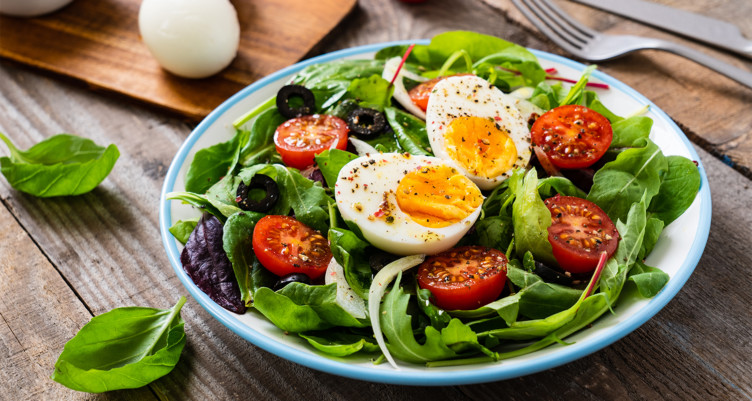
Eliminating meat, poultry and fish from your diet makes it harder to meet your macro goals. However, there are several plant-based and lacto-ovo vegetarian keto-friendly protein sources.
You can get enough protein with:
- Protein powders: Try pea, hemp or whey for smoothies, shakes or other recipes. If you have trouble tolerating lactose (whey), plant-based protein powders can be worth a try.
- Pasture-raised eggs: These taste better than your typical grocery store variety. They also provide your body with quality fats. By consuming eggs, you can benefit from vitamins A, B5, B6, B12, D, E, K as well as calcium and zinc. Nutritious and delicious.
- Cheese: Eat cheese in moderation if your body handles dairy well. You can also choose vegan cheeses to stick to a plant-based protocol. Check the labels for fillers, starches and added sugars, which are not keto-friendly. Though vegan cashew cheese may be safe, tempeh cheese is made of soy. This is not recommended on the keto diet.
Remember, you don’t want to pack too much protein into your vegetarian keto diet. In general, keep your macronutrient percentage intake at around 20 percent.
Related: What Are Macros, and Should You Count Them?
Best Low-Carb Nuts and Seeds for Vegetarian Keto Dieters
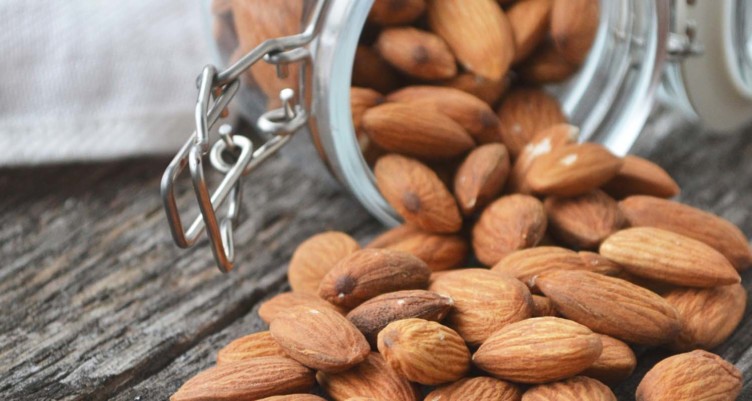
When you need a protein-rich snack, a handful of nuts could be an excellent option. And while some nuts and seeds do fall into the low-carb category, you’ll want to exercise caution.
It’s important to note carb count when it comes to nuts. A couple of spoonfuls that turn into a few handfuls can send your macros through the roof. And, if you exceed your carb allotment because you’ve had a more-than-generous serving of nuts, you can move out of ketosis. Getting your body back into its fat-burning state can take a good amount of work.
At the end of the day, though, nuts and seeds are great for both traditional and vegetarian keto. They contain both fats and protein, as well as different types of nutrients. Some low-carb nut options include:
- Walnuts
- Pecans
- Macadamia nuts
- Almonds
Some consider coconut to be a fruit. We believe it’s a keto-friendly nut that fuels your body and brain with beneficial fats. Peanuts are legumes, though. That means they don’t fit well with a keto diet.
What about seeds?
Your vegetarian keto meal plan can include pumpkin seeds and sunflower seeds. Seeds pack quality fats and protein. They also contain important vitamins, minerals, antioxidants and fiber.
Nut butters and seed butters are also great ways to hit your macros. Nut milks are good plant-based, low-carb alternatives to milk, half-and-half and heavy cream.
Fruits and Veggies
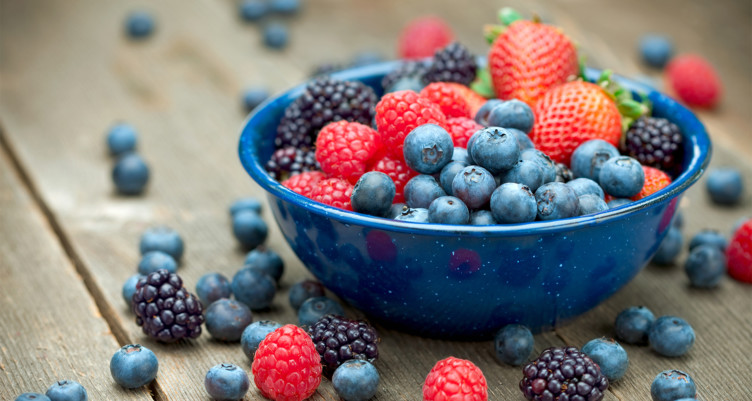
Fruits and vegetables are at the core of a vegetarian lifestyle. As such, you’ll get the majority of your carb intake from them on this meal plan.
That doesn’t mean all fruits and veggies fit a vegetarian keto diet. Fruits like ripe bananas contain a lot of natural sugar, which can cause your blood sugar to spike.[14] And some vegetables, such as white potatoes and corn, have high carb counts that don’t support a ketogenic lifestyle.
What Fruits Can I Eat on a Vegetarian Keto Diet?
So, which fruits can you incorporate into your weekly vegetarian keto meal plan? Go organic as often as possible and try:
- Berries: Strawberries, blackberries and raspberries are keto-safe. Blueberries are a bit higher in carbs. Eat them in moderation.
- Melon: Ok on occasion.
- Avocados: They are also a great source of quality fats.
- Citrus: Lemons and limes are ideal for cooking and infused waters.
- Tomatoes: Ok if you don’t have a problem with nightshades.
What Veggies Are Keto-Friendly?
Certain veggies, especially tubers, don’t work well with a ketogenic diet because of their high carb content. But there’s plenty of other produce to add to your vegetarian keto food list:
- Leafy greens: Spinach, cooked kale, lettuce, arugula, collard greens and cabbage.
- Cruciferous vegetables: Brussels sprouts, bok choy, broccoli and cauliflower.
- Root and taproot vegetables: Radish, jicama and turnip.
- Squashes: Yellow squash, zucchini, pumpkin, Delicata, kabocha and chayote
You can also make tasty salads and other keto-friendly dishes with cucumbers and celery. Cook sparingly with mushrooms, bell peppers, onions and garlic. Avoid bell peppers if you don’t tolerate nightshades.
Here again, shop organic as often as possible.
Vegetarian Keto Baking Essentials

Whether you consume animal products on a keto diet or stick to a vegetarian keto approach, you’ll want baking essentials to hand. These are for when the craving for a keto dessert strikes.
There are several keto-approved sugar substitutes that many keto dieters use, including:
- Erythritol
- Monk fruit
- Stevia
- Xylitol
Note: Although xylitol is human-friendly, proceed with extra caution if you’re a dog lover. Xylitol is toxic to dogs. Store it safely out of reach from your pooch.
You’ll also need “flour” to make your baked goods come to life. Some gluten-free, grain-free, low-carb flour substitutes include:
- Coconut flour
- Almond flour
- Flaxseed meal
- Pumpkin seed flour
Finally, you may need a thickening agent to bind the ingredients together. In that case, xanthan gum and psyllium husk work well. The latter is a great source of fiber. This can only spell good things for your digestive system and gut health.
Related: Kick Your Sugar Habit With These Bulletproof Alternative Sweeteners
Ready to put it all together? Let’s make a vegetarian keto meal plan.
How to Craft a Vegetarian Keto Meal Plan
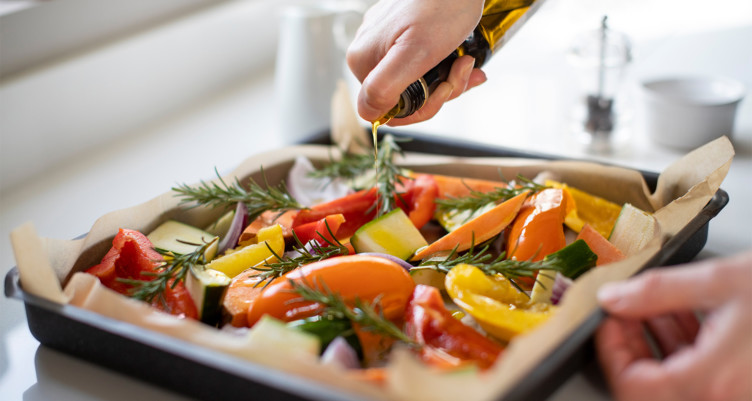
Now that you know what a vegetarian keto food list looks like, it’s time to build out a perfect meal plan. Hit your macro goals and give your body all the micronutrients it needs.
If you’re new to a vegetarian keto approach, don’t worry. Here’s a side-by-side comparison of what a typical keto meal plan looks like versus a plant-based approach.
Standard keto day
A typical day of eating on a standard keto diet that includes animal products could look like this:
- Breakfast: A cup of Bulletproof Coffee, or scrambled eggs with sugar-free bacon or sausage
- Lunch: Seasoned chicken thighs cooked in avocado oil over a salad of fresh greens
- Dinner: A grass-fed ribeye steak with a side of spinach and broccoli cooked in grass-fed ghee
- Dessert: A serving of Dark Chocolate Collagen Pudding
Vegetarian Keto Day
Here’s an example of what your day might look like if you’re following a more plant food-based keto approach:
- Breakfast: A cup of Bulletproof Coffee (minus the ghee, if you’re not lacto-ovo) or a plant-based protein shake with added MCT oil
- Lunch: A fresh salad topped with avocado, hard-boiled eggs (optional), a mixture of nuts, seeds and a fat-fueled keto dressing
- Dinner: Cauliflower fried rice with various veggies flavored with coconut aminos and cooked in coconut oil
- Dessert: A small bowl of fresh, mixed berries with a dollop of coconut cream
As you can see, you don’t have to make huge changes to eat keto as a vegetarian. You can still enjoy the benefits of ketosis by building out an enjoyable meal plan full of plant-driven flavors and quality fats.
Vegetarian Keto Recipes

Ready to test your cooking skills? From frittatas to zucchini noodles, there are many vegetarian ketogenic diet recipes. Try the ones below to incorporate healthy fats in a tasty way.
After all, the keto diet requires you to get about 70 percent of your caloric intake from fats. Vegetarian recipes can get a healthy boost by using quality fats while cooking. Saute seasonal vegetables in high-quality, extra-virgin olive oil, or roast them with avocado oil. It’ll make you think twice about ever picking up something pre-made from the grocery store again.
As you continue to build your personalized keto meal plans, research vegetarian recipes. Below is a collection of staples to include in your vegetarian keto arsenal. Hit your macros consistently when cooking up these savory eats and sweet treats:
- Vegetarian Curry
- Quick Pickled Vegetables
- Avocado-Cucumber MCT Oil Salad Dressing
- Guacamole With Radish and Jicama
- Mashed Turnips
- Thyme and Zucchini Fritters
- Whole Roasted Cauliflower With Chimichurri Sauce
- Shaved Brussels Sprouts Salad With Lemon-Thyme Vinaigrette
- Zucchini Chocolate Cake
- Keto Lemon Bars
Can Supplements Support Your Vegetarian Keto Journey?

A vegetarian keto diet can help if you can’t digest animal and dairy products, or if you don’t eat them for ethical reasons. However, removing those foods from your diet can result in micronutrient deficiencies.
Supplements can be a helpful solution to combat this challenge. In particular, vegetarian keto dieters might want to try:
- Bulletproof Methyl B-12: It’s difficult to get vitamin B12 from non-animal protein sources (grass-fed red meat is considered the best). This supplement can help you avoid B12 deficiency.
- Bulletproof Zinc with Copper: This important supplement contains two essential minerals. Vegetarians may miss out on these minerals by not eating animal products. Zinc helps support functions such as immunity[15]
and mood.[16] Copper supports energy production.[17] We’ve combined the two in one convenient capsule form. - Bulletproof Zen Mode: This holistic relaxation supplement is great for vegetarian keto dieters. It’s also good for anyone experiencing stress. It includes magnesium, L-Theanine and a Zen Blend. It’s designed to calm your body and mind.
- Bulletproof InnerFuel Prebiotic: This plant-based, keto-friendly prebiotic supplement supports the production of healthy gut bacteria. It’s unflavored, so it’s easy to mix into a fat-powered smoothie or a cup of Bulletproof Coffee.
- Bulletproof Coconut Charcoal: For many vegetarians, removing animal products from their diet is the first step toward cleansing the body of unwanted bacteria and toxins. This ultra-fine charcoal powder sourced from 100 percent coconuts can help bind to and remove everyday toxins.
The Bottom Line: Keto for vegetarians is safe and feasible. Keep your kitchen stocked with our vegetarian keto food list, so you can stick to the right foods for sustained ketosis. Add supplements to your diet, as well as various vegetarian keto recipes, to help make up for micronutrient deficiencies.
Looking for a hybrid approach to your diet? Learn about the paleo-vegan diet. It’s also known as “pegan.” This diet features quality fats and proteins from sustainably raised animal products.
Sign up for early access to sales, product launches, the latest Bulletproof news and more!



